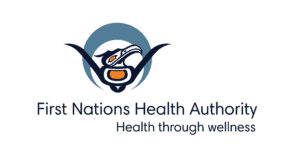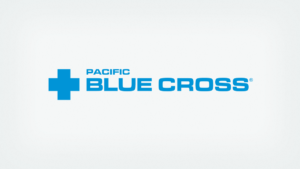Affordable Mental Health Support
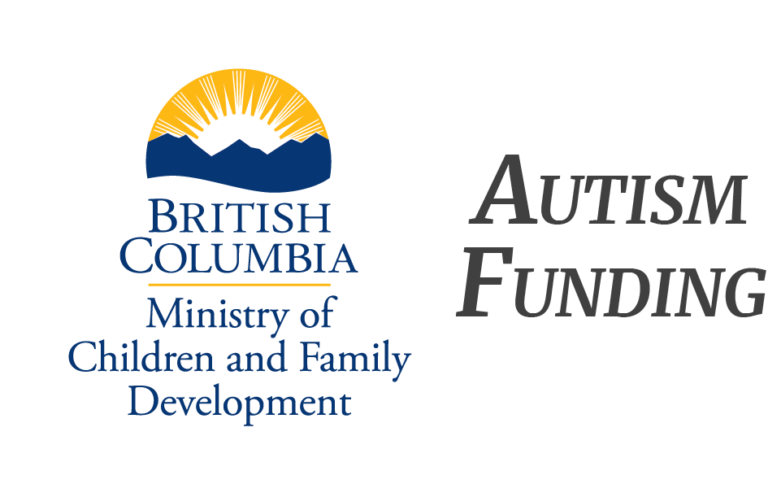
BC Ministry of Children and Family Development (MCFD) Autism Funding Program
Navigating the complexities of raising a child with autism can be both rewarding and challenging. From specialized therapies to educational support, the financial burden can be significant. However, you're not alone. Government funding programs are available to help offset these costs, making quality care more accessible.
The BC MCFD offers Autism Funding for up to $22,000/yr for children under 6 and up to $6,000/yr for children 6-18. Counselling services can be included in this funding and we have experienced and caring counsellors ready to support your family.
Program details including assessment requirements, funding limits, and applications can all be found on the BC MCFD's Autism Funding page.
Once you have your assessment and approval, we are here ready to support your family, please visit our Neurodiversity page for more information.
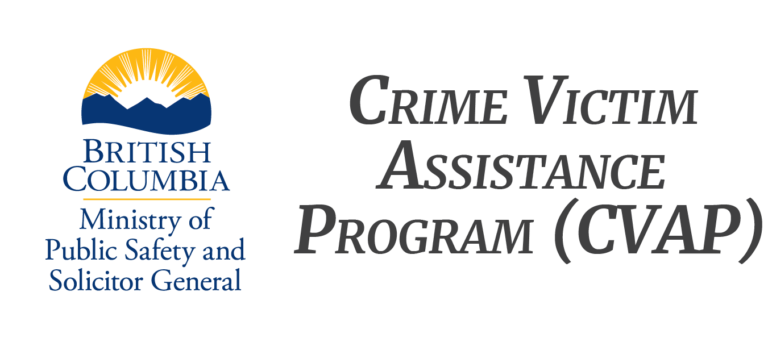
BC Ministry of Public Safety and Solicitor General (PSSG) Crime Victims Assistance Program (CVAP)
What does being the victim, family member, or witness of a crime feel like for you?
- Post-Traumatic Stress Disorder (PTSD): "I keep reliving the traumatic event and I avoid anything that reminds me of it."
- Anxiety and Panic Attacks: "I have sudden attacks of fear where my heart races, I can't breathe, and I feel like I'm going to lose control."
- Depression: "I feel sad all the time and I've lost interest in things I used to enjoy."
- Fear of Recurrence or Hypervigilance: "I'm constantly on edge, always looking over my shoulder, and afraid it's going to happen again."
- Sleep Disturbances and Nightmares: "I can't sleep at night because of the nightmares or I wake up feeling exhausted."
- Grief and Loss: "I'm struggling with the loss of [loved one or significant life change] and I don't know how to move forward."
- Anger Management Issues: "I get really angry and irritable, especially when I'm reminded of the crime."
- Emotional Numbness or Detachment: "I feel disconnected from my emotions and like I'm just going through the motions."
There are many ways a crime can affect your life. If you have been physically or psychologically hurt as a result of a violent crime that occurred in British Columbia, you may be eligible for benefits to support your recovery.
The Crime Victim Assistance Program (CVAP) provides a range of benefits to assist victims, immediate family members of victims and certain witnesses in coping with the effects of violent crime, where same or similar benefits are not available from another source.
Among the many Benefits offered under this program are Counselling Services for victims (48 hours), immediate family members (36 hours), and witnesses (12 hours) of crime. Please note that while CVAP covers most of the cost of counselling services, it offers a fixed rate subsidy, so depending on the rate of the counsellor you choose to work with, there may be a portion of the fee that you will need to pay directly.
Start by completing the Application Form, and once approved, we will be able to support you as an Approved Provider and will bill the program directly on your behalf so you are not out of pocket for the subsidized portion.
Applications should be made within one year of the date of the crime, and you do not need to wait until charges are filed to be enrolled in the program and start receiving benefits to help you get better.
Here are helpful contact numbers for the CVAP program:
Telephone: (604) 660-3888 (Lower Mainland) | 1-(866) 660-3888 (Toll-Free)
Email: cvap@gov.bc.ca
Mailing: PO Box 5550 Station Terminal, Vancouver, BC, V6B 1H1
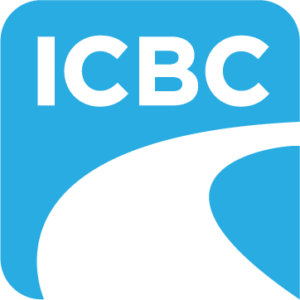
How does involvement in an automotive accident feel for you?
- Fear of Driving: "I'm terrified to get behind the wheel again."
- Flashbacks: "I keep reliving the accident over and over in my mind."
- Nightmares about the Accident: "I have nightmares about the accident that wake me up, feeling terrified."
- Panic Attacks: "I have sudden attacks of fear where my heart races, I can't breathe, and I feel like I'm going to lose control."
- Refusal to Talk or Think About the Accident: "I don't want to talk about it or think about it. It's too painful."
- Inability to Remember the Accident, Forgetfulness: "I can't remember certain details of the accident, and I'm more forgetful than usual."
- Excessive Guilt About the Accident: "I feel so guilty about what happened, even if it wasn't my fault."
- Loss of Interest in Work, School, or Other Activities: "I've lost interest in things I used to enjoy."
- Tendency to Startle Easily, Jumpiness: "I'm easily startled and jumpy, especially when I hear loud noises."
- Angry Outbursts: "I find myself getting angry and irritable more often than usual."
Enhanced Care means you’re pre-approved
Since May 2021, Enhanced Care covers everyone for 12 weeks after their crash no matter who was responsible. That means you don’t have to wait to start your pre-approved treatments. All you need is your ICBC claim number, which is created when you submit your claim. Although you are pre-approved for 12 counselling sessions, you may also be eligible for more than this if you need continued support.
We are an Approved Partner with ICBC, so you are able to access care once you have made your claim and we can direct bill on your behalf so you are not out of pocket.
If you have questions, feel free to reach out to us, or you can visit ICBC to find all the information on the Enhanced Care Program.
Mental Health Counselling Coverage for Canadian Military Veterans and RCMP Members
This information outlines the coverage available for mental health counselling for Canadian Military Veterans and RCMP members. It's designed to help you understand your benefits and access the support you need. Just like after an accident, experiences during service can lead to a range of challenges. If you're experiencing difficulties, it's important to know that help is available.
Understanding Your Coverage:
Veterans Affairs Canada (VAC) offers comprehensive mental health support to eligible Veterans and their families. Similarly, the RCMP offers support to its members. Both recognize the importance of mental well-being and provide coverage for various mental health services, including counselling. This coverage aims to address a wide range of issues that may arise from your service, including (but not limited to):
- Post-Traumatic Stress Disorder (PTSD): Characterized by flashbacks, nightmares, hypervigilance, and emotional numbing.
- Anxiety: Including generalized anxiety, panic attacks, and social anxiety.
- Depression: Persistent sadness, loss of interest, fatigue, and difficulty concentrating.
- Sleep Disturbances: Insomnia, nightmares, and other sleep-related problems.
- Anger Management Issues: Difficulty controlling anger, irritability, and outbursts.
- Relationship Problems: Strained relationships due to the impact of service-related stress.
- Grief and Loss: Dealing with the loss of comrades, loved ones, or a sense of normalcy.
- Substance Use Issues: Using alcohol or drugs to cope with difficult emotions.
Accessing Mental Health Counselling:
- Veterans: VAC funds mental health services through a variety of programs. You can access these services by contacting VAC directly or by working with a case manager. They can help you determine your eligibility and connect you with qualified mental health professionals in your community. For more information, visit the VAC website at https://veterans.gc.ca/en/mental-and-physical-health/mental-health-and-wellness or call them directly.
- RCMP Members: The RCMP provides mental health support through its internal health services and through agreements with external providers. Contact your detachment's health services or a designated mental health coordinator to learn more about the available resources and how to access them.
Finding a Counsellor:
Both VAC and the RCMP may have a network of approved mental health providers. You can also choose a counsellor independently, and your coverage may still apply. When choosing a counsellor, consider their experience working with Veterans or RCMP members, as they may have a better understanding of the unique challenges you face. Ask about their approach to treatment and ensure you feel comfortable with them.
Direct Billing and Reimbursement:
- Veterans & RCMP Members: Direct billing for mental health counselling is often available through Medavie Blue Cross. At MasterMind we have counsellors who are registered and can bill Medavie Blue Cross directly for your sessions, eliminating the need for you to pay out of pocket and submit a claim.
Confidentiality:
Your privacy is important. Mental health counselling sessions are confidential, and counsellors are bound by professional ethics to protect your information. However, there may be some legal exceptions to confidentiality, such as if you pose a risk to yourself or others. Your counsellor can discuss these limits with you.
Don't Hesitate to Seek Help:
If you are struggling with your mental health, please don't hesitate to reach out for support. You are not alone, and there are resources available to help you. Early intervention is often key to recovery. Contact VAC or your RCMP health services today to learn more about your coverage and how to access mental health counselling.
Mental Health Counselling Coverage for First Nations in British Columbia
This information outlines the coverage available for mental health counselling for First Nations individuals in British Columbia. It's designed to help you understand your benefits and access the support you need. Experiences and challenges in life can affect mental wellbeing, and it's important to know that help is available.
Understanding Your Coverage:
The First Nations Health Authority (FNHA) provides comprehensive health benefits to First Nations people in BC, including coverage for mental health services. The FNHA recognizes the importance of mental and emotional wellbeing and supports access to a variety of services, including counselling, to address a wide range of issues. These can include (but are not limited to):
- Anxiety: Including generalized anxiety, panic attacks, and social anxiety.
- Depression: Persistent sadness, loss of interest, fatigue, and difficulty concentrating.
- Trauma: Experiences of trauma can lead to a range of challenges, including PTSD, flashbacks, and emotional dysregulation.
- Substance Use Issues: Using alcohol or drugs to cope with difficult emotions.
- Grief and Loss: Dealing with the loss of loved ones, cultural practices, or a sense of belonging.
- Relationship Problems: Strained relationships due to various factors.
- Family Violence: Experiences of or witnessing family violence.
- Intergenerational Trauma: The impact of historical trauma on individuals and communities.
- Cultural Safety and Wellness: Support that respects and incorporates cultural beliefs and practices.
Accessing Mental Health Counselling:
The FNHA funds mental health services through a variety of programs and service providers. You can access these services by:
- Contacting your local health centre or community health worker: They can provide information about available services in your community and help you navigate the process.
- Visiting the FNHA website: The FNHA website provides information about mental health benefits and resources. Visit https://www.fnha.ca/benefits/mental-health for more details.
- Calling the FNHA Health Benefits Contact Centre: They can answer questions about your coverage and direct you to appropriate resources.
Finding a Counsellor:
The FNHA may have a network of approved mental health providers. You can also often choose a counsellor independently, and your coverage may still apply. When choosing a counsellor, consider their experience working with First Nations individuals and their understanding of cultural safety and traditional healing practices. It's important to find a counsellor you feel comfortable with. We have taken the San'yas Indigenous Cultural Safety Training (https://sanyas.ca/) to enhance our understanding and commitment to culturally safe practices.
Direct Billing and Reimbursement:
Direct billing for mental health counselling is available through Pacific Blue Cross for FNHA clients. This means that many counsellors, including us, can bill Pacific Blue Cross directly for your sessions, eliminating the need for you to pay out of pocket and submit a claim. Confirm with your chosen counsellor that they offer direct billing through Pacific Blue Cross. If direct billing isn't available, you may need to pay for the services upfront and then submit a claim for reimbursement. Contact the FNHA Health Benefits Contact Centre for specific details regarding your coverage and reimbursement procedures.
Confidentiality:
Your privacy is important. Mental health counselling sessions are confidential, and counsellors are bound by professional ethics to protect your information. However, there may be some legal exceptions to confidentiality, such as if you pose a risk to yourself or others. Your counsellor can discuss these limits with you.
Cultural Safety:
The FNHA is committed to providing culturally safe and appropriate mental health services. This means that services should be respectful of your cultural beliefs, values, and traditions. We are committed to providing culturally safe services and have taken the San'yas Indigenous Cultural Safety Training to further our understanding and practice in this area. If you have any concerns about cultural safety, please discuss them with your health care provider or contact the FNHA.
Don't Hesitate to Seek Help:
If you are struggling with your mental health, please don't hesitate to reach out for support. You are not alone, and there are resources available to help you. Early intervention is often key to recovery and well-being. Contact your local health centre, community health worker, or the FNHA Health Benefits Contact Centre today to learn more about your coverage and how to access mental health counselling.
Low Cost (Intern) Counselling
At MasterMind Brain Optimization Centres, we believe that everyone deserves access to quality mental health support. That's why we offer a Low-Cost Counselling program that is both affordable and effective. Our program utilizes the services of supervised counselling interns who have completed their academic training and are working towards obtaining their full licensure.
Private Insurance Coverage and Direct Billing
We partner with several insurance companies to make the process of accessing your insured benefits (usually through your employer) easy, and in some cases we can offer direct billing so that you are not out of pocket for your health care costs. Ask us for more information on how this might work for your insurance provider.

Canada Life Direct Billing Supported
Tips for Navigating Employer Provided Insurance
Is Counselling Covered by My Employer Insurance?
Counselling can be a valuable tool for addressing mental health concerns and improving overall well-being. Many employers offer insurance plans that include some level of coverage for mental health services. However, navigating these plans can sometimes be confusing.
Here are some tips to help you determine if your employer insurance covers counselling services:
1. Review Your Policy Documents:
- Obtain a copy of your employee benefits booklet or summary of coverage (Your employer payroll/compensation/benefits department often provides access information to an online portal for your group insurance). This document will outline the specific details of your insurance plan, including:
- Mental health coverage: Does your plan include coverage for mental health services such as psychotherapy, counselling, or therapy sessions?
- Coverage limits: What are the annual or lifetime maximums for mental health services? Are there any deductibles or co-pays?
- Eligible providers: Does your plan specify which types of mental health professionals are covered?
- Commonly used acronyms:
- RCC: Registered Clinical Counsellor
- CCC: Canadian Certified Counsellor
- RPsych: Registered Psychologist
- MSW: Master of Social Work
- MFT: Marriage and Family Therapist
- If the counsellor you are considering is not within the network, they can usually be added if they are properly licensed.
- Commonly used acronyms:
2. Contact Your Insurance Provider:
- Call the customer service number on the back of your insurance card.
- Inquire about your specific coverage for mental health services.
- Ask about any pre-authorization requirements. Some plans may require you to obtain prior approval from your insurance company before starting counselling.
- Clarify any questions you have regarding your coverage limits, deductibles, and co-pays.
3. Understand Your Out-of-Pocket Costs:
- Determine your financial responsibility for counselling sessions.
- Factor in any deductibles, co-pays, or co-insurance amounts.
- Consider alternative payment options if your insurance coverage is limited.
4. Seek Guidance from Your Employer's Human Resources Department:
- Contact your HR department for assistance in understanding your benefits package.
- They can provide you with information about your coverage and answer any questions you may have.
Disclaimer: This information is for general guidance only and may not be applicable to all situations. Please refer to your specific insurance policy documents for the most accurate and up-to-date information regarding your coverage
Ready to embark on your journey of personal growth? Book a free 15-minute consultation with one of our experienced therapists today.
We offer in-person counselling sessions in our North Vancouver, BC offices as well as Secure Remote Video Counselling Sessions for those connecting from further away. If you are outside of British Columbia but within Canada and your insurance provider requires counselling sessions be done by someone locally licensed please let us know for billing purposes as we have counsellors licensed under both BCACC (RCC) for BC and CCPA (CCC) for Canada.

